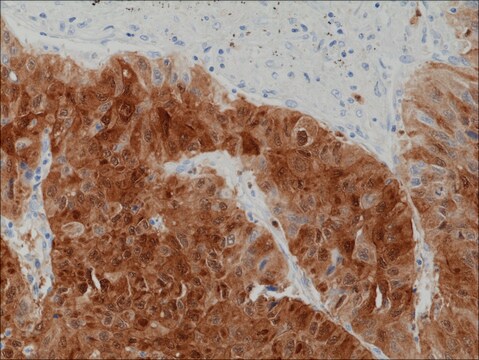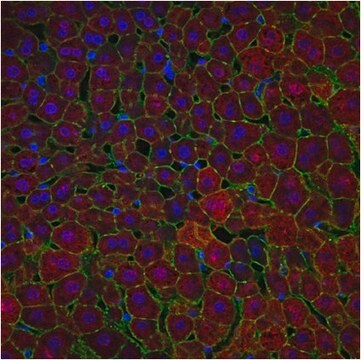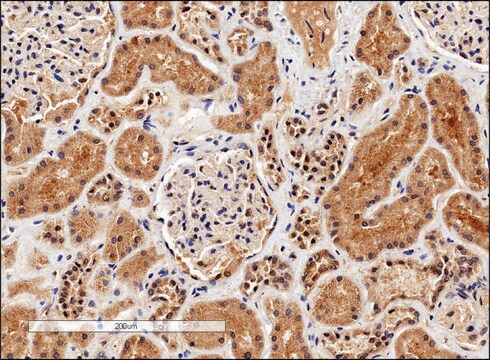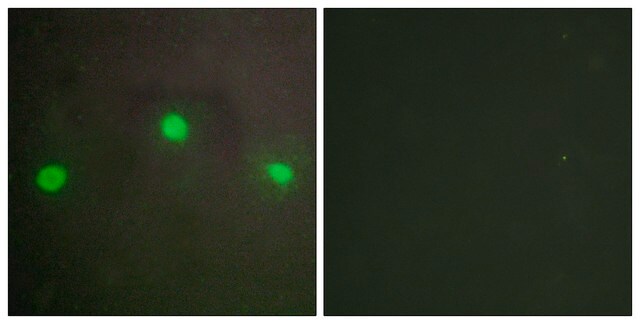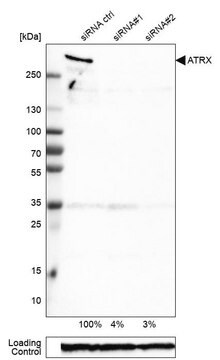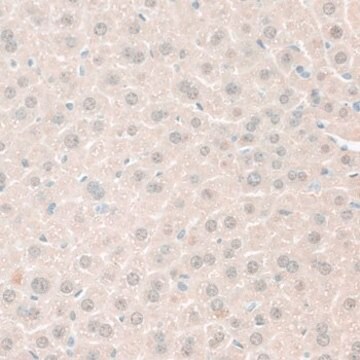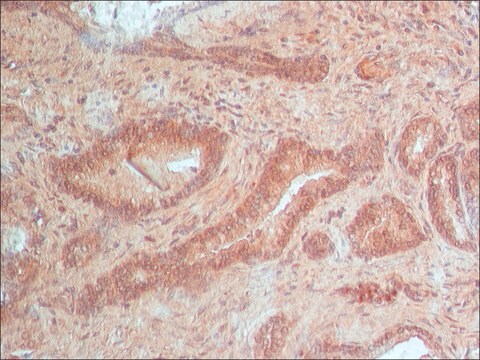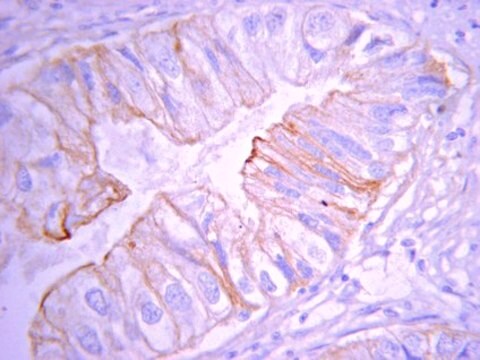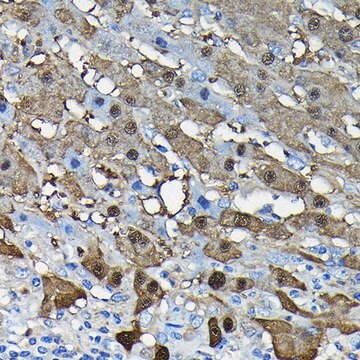ZRB1088
Anti-Arginase-1 Antibody, clone 3B17 ZooMAb® Rabbit Monoclonal

recombinant, expressed in HEK 293 cells
About This Item
Produits recommandés
Source biologique
rabbit
Niveau de qualité
Produit recombinant
expressed in HEK 293 cells
Conjugué
unconjugated
Forme d'anticorps
purified antibody
Type de produit anticorps
primary antibodies
Clone
3B17, recombinant monoclonal
monoclonal
Gamme de produits
ZooMAb® learn more
Forme
lyophilized
Poids mol.
calculated mol wt ~34.74 kDa
observed mol wt ~38 kDa
Espèces réactives
human
Conditionnement
antibody small pack of 25 μL
Caractéristiques du produit alternatif plus écologique
Waste Prevention
Designing Safer Chemicals
Design for Energy Efficiency
Learn more about the Principles of Green Chemistry.
Validation améliorée
recombinant expression
Learn more about Antibody Enhanced Validation
Technique(s)
affinity binding assay: suitable
flow cytometry: suitable
immunohistochemistry (formalin-fixed, paraffin-embedded sections): suitable
western blot: suitable
Isotype
IgG
Numéro d'accès UniProt
Autre catégorie plus écologique
Conditions d'expédition
ambient
Température de stockage
2-8°C
Modification post-traductionnelle de la cible
unmodified
Description générale
Each ZooMAb antibody is manufactured using our proprietary recombinant expression system, purified to homogeneity, and precisely dispensed to produce robust and highly reproducible lot-to-lot consistency. Only top-performing clones are released for use by researchers. Each antibody is validated for high specificity and affinity across multiple applications, including its most commonly used application. ZooMAb antibodies are reliably available and ready to ship when you need them.
Spécificité
Immunogène
Application
Evaluated by Western Blotting in Human Liver tissue lysate.
Western Blotting Analysis: A 1:1,000 dilution of this antibody detected Arginase-1 in Human Liver tissue lysate.
Tested Applications
Immunohistochemistry (Paraffin) Analysis: A 1:100 dilution from a representative lot detected Arginase-1in human liver tissue sections.
Flow Cytometry Analysis: 0.1 μg from a representative lot detected Arginase-1 in one million HepG2 cells.
Affinity Binding Assay; A representative lot of this antibody bound Arginase-1 peptides with a KD of 1.3 x 10-7 in an affinity binding assay.
Note: Actual optimal working dilutions must be determined by end user as specimens, and experimental conditions may vary with the end user
Description de la cible
Forme physique
Reconstitution
Stockage et stabilité
Informations légales
Clause de non-responsabilité
Vous ne trouvez pas le bon produit ?
Essayez notre Outil de sélection de produits.
Code de la classe de stockage
11 - Combustible Solids
Classe de danger pour l'eau (WGK)
WGK 1
Point d'éclair (°F)
Not applicable
Point d'éclair (°C)
Not applicable
Certificats d'analyse (COA)
Recherchez un Certificats d'analyse (COA) en saisissant le numéro de lot du produit. Les numéros de lot figurent sur l'étiquette du produit après les mots "Lot" ou "Batch".
Déjà en possession de ce produit ?
Retrouvez la documentation relative aux produits que vous avez récemment achetés dans la Bibliothèque de documents.
Notre équipe de scientifiques dispose d'une expérience dans tous les secteurs de la recherche, notamment en sciences de la vie, science des matériaux, synthèse chimique, chromatographie, analyse et dans de nombreux autres domaines..
Contacter notre Service technique